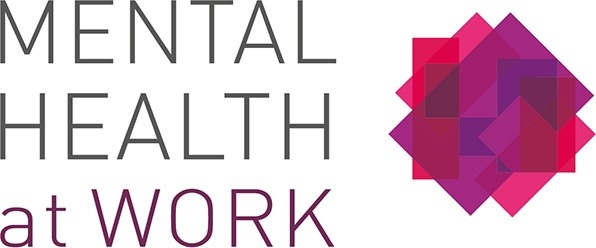A 2018 survey carried out by the Chartered Institute of Personnel and Development (CIPD) found that 23% of British workers don’t feel their organisation takes employee wellbeing and mental health seriously, even though 1/3 of the UK workforce experiences anxiety, depression and stress.
With the new year ahead, it’s critical that employers must implement health and wellbeing initiatives in order to support mental health in the workplace.
In this article, we’ll explore how businesses, both small and large, can prioritise mental health at work in 2020, in a few areas:
- Using “January Blues” To Tackle The Stigma Surrounding Mental Health At Work
- How Mental Health Impacts Employees, And Businesses
- Why Implement A Mental Health Training Programme?
- How Mental Health At Work Can Help
Using “January Blues” To Tackle The Stigma Surrounding Mental Health At Work
In recent years, January has been labelled as the month where, statistically, the highest number of people hand in their work notice.
Many of us feel a little bluer around the edges during January, but this is more often just a post-Christmas slump than clinical depression or anxiety. Multiple interrelated health, social and financial factors in our lives can often leave us feeling low.
SAD, seasonal affective disorder, is a narrative that can reduce stigma surrounding mental health by promoting the need for open, supportive conversations during difficult periods. While being careful not to uphold the idea that mental health is something that only affects us at certain times of the year.
This narrative of relating mental health to certain days in the calendar is most typically seen in January. ‘Blue Monday’ campaigns, where the third Monday in January is labelled ‘the most depressing day of the year’, is often used as an incentive in advertising campaigns to get people spending their way out of mental health problems.
This not only compounds the stigmatised narrative that mental health is something that can be easily remedied but also monopolises mental health into something to be shopped away, which can be damaging to people living with often debilitating conditions.
Stephen Buckley, head of information at Mind, suggests that ‘Blue Monday’ campaigns often “trivialise what can be a serious and potentially life-threatening condition.”
Chartered psychologist Dr Joan Harvey also suggests that pegging depression to one day, in particular, is “sensationalist nonsense.”
However, we can take control of the narrative in a way that incites the right conversation. Increased awareness, at any time of year, can be used as a vehicle to tackle the stigma surrounding mental health.
Instead of condensing mental health into something that immediately goes away after the “January Blues’ diminish, awareness can be spread into the very serious elements of mental health and signpost support.
We all have mental health, and can all take steps around the year to protect it.
How Mental Health Impacts Employees, And Businesses
Mental health is the single largest cause of disability in the UK contributing around 22% towards the total burden.
Every one of us, at some point in our lives, will experience difficulties with our mental health or feel overwhelmed and unsure about where to go for support.
According to NHS Digital, mental health conditions accounted for nearly 1/3 of all ‘not fit for work’ notes written by GPs in England between December 2014 and March 2017.
And of course, absent staff means suffering businesses. Without hard-working employees to complete goals, reach quotas and generally allow organisations to run day-to-day, businesses are impacted significantly.
The cost of mental health, for businesses, is more than just financial.
Of course, while it’s estimated that in 2018 mental health costs the UK more than £94billion, including treatment, social support and the losses to the economy from people who cannot work, this is not the true cost of poor mental health.
Not providing workplace mental health support impacts businesses on two fronts – absence, and presenteeism.
Presenteeism, when an employee is present but is less productive due to poor mental health at work, is two to three times higher than the absence caused by mental health issues.
Without a supportive work environment, a business will suffer because its staff are either absent or unable to perform to their best ability but equally unable to access their required support without taking time off work.
Therefore, implementing a programme or policy which actively supports the wellbeing of your staff:
- Increases your staff retention
- Increases profits by up to 3 times that of businesses who don’t support mental wellbeing
And considering there are 5.8 million small businesses in the UK, this can play a powerful part in improving not only the lives of their employees but also changing the narrative often associated with mental health in the workplace.
At a time where our industries are so focused on productivity and efficiency, there is the inescapable notion that the UK economy itself cannot afford the high production cost of poor mental health.
Businesses themselves that do not implement mental health training courses, workshops or policies are finding themselves without staff.
A survey carried out by the CIPD found that less than 3/5 of workers reported that they have fair and inclusive absence and performance policies; while less than 1/2 have supportive line management styles that treat people as individuals.
Working in an environment that does not support mental wellbeing is becoming a factor which younger generations are not tolerating. A study published by the Harvard Business Review found:
- 50% of millennials
- 75% of Gen-Zers
had left roles, both voluntarily and involuntarily, because of mental health reasons. The younger workforce is simply not tolerating businesses that aren’t putting mental health at the forefront of their initiatives.
Therefore, creating a workplace environment that supports mental health is not only essential to improving the wellbeing of employees overall but also impacting on the success and longevity of a business.
Why You Need a Mental Health Training Programme?
Quite simply, you will fall behind if you don’t.
Without policies or support structures in place that provide essential workplace mental health support, your business will be left behind in the wake of progress.
As succinctly stated by the HEE: “Supportive organisations reduce the reliance on individual resilience and instead create the conditions for staff to flourish and thrive.”
Workplace environments that take the pressure off individuals to support their own mental health – which is often impossible – and instead provide supportive policies, treat their staff as individuals and make reasonable allowances for their staff, are more successful.
In 2019, of a poll of 437 UK employers 75% of those planned to implement wellbeing and mental health into their benefits strategies, with social and financial wellbeing as the main subjects of concern.
More than a third of these businesses suggested that they were focusing on financial wellbeing, and 35% on social wellbeing. This ranged from a sense of connectedness to interacting well with others in the workplace and community.
A further 31% of polled businesses were prioritising stress and resilience management programmes as part of their aim to tackle mental health in the workplace.
While this one poll is not representative of the entire UK workplace, clearly defines the forward-thinking path that UK businesses must take in order to progress, and meet the needs of today’s workforces.
If your business wants to attract, and retain top talent, then you need to set certain standards by making meaningful and measurable improvements to mental health and wellbeing.
One of the ways that businesses can do this is to implement a mental health awareness course or support programme.
How Mental Health At Work Can Help
If like many businesses, you are unsure of where to start regarding how or why you should implement a mental health training programme in your workplace, this is where Mental Health At Work comes in.
By developing and delivering mental health training courses that are bespoke, and therefore designed to meet your businesses needs, MHAW addresses your specific learning outcomes.
Mental health should be considered in alignment with business goals and productivity, in the sense that it has a dramatic impact on the financial success and the social reputation of a business.
Ensuring that your workplace is not conducive to negative, or stigmatised discussions about mental health is just the first step in creating a supportive environment where individuals can thrive and be productive.
As seen in the above statistics, today’s workforce is beginning to demand working environments that are supportive of mental health and wellbeing.
The millennial generation has taken leaps forward to destigmatize narratives surrounding mental health support, with many younger people advocating open discussions about mental health on social platforms.
This will predictably only gain momentum as more and more of us understand the importance of prioritising mental health at work – especially considering that it has been found that money and work are the leading factors that contribute to stress in young people.
MHAW works to empower businesses to encourage positive attitudinal and behavioural changes in the workplace surrounding mental health.
Face-to-face mental health workshops introduce practical skills around understanding and management of mental health to the whole employee population – from senior leaders to HR, line managers and general employees.
This creates a shared narrative of understanding about how to notice and manage mental health at work by improving awareness and providing the key knowledge to differentiate between health issues and mental illness.
Why not see what Mental Health At Work can do for your business? Or come along to the Taster Session being held on 6th February 2020

